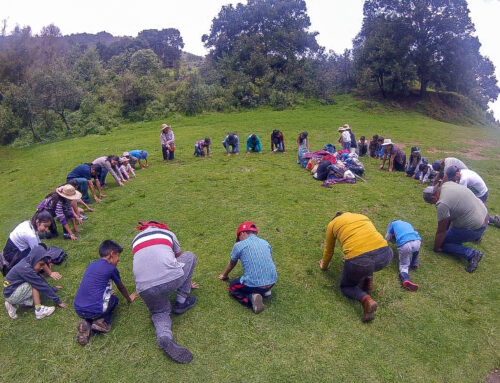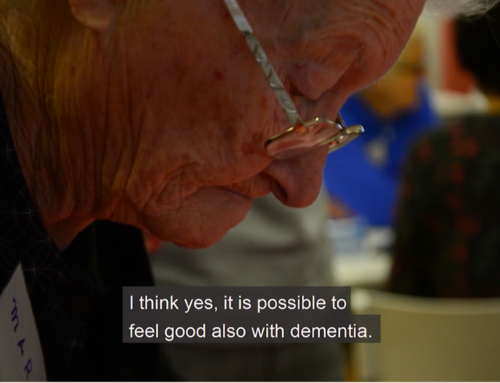Well why am I talking about the past if you’re talking about the future?
Oh. Because you said you were planning on doing stuff that you hadn’t been able to do before.
Oh yeah. I’m sorry. I’m turning into a doddy old lady here.
Okay. Yeah. This was stuff I should have been allowed to do 40 years ago. And in a more progressive regime, you know, teenagers have problems, and they deal with it. A lot of the teens like me, transsexual, gay transsexual teens like me, just committed suicide and disappeared quietly. And I’m like this old fossil that got left behind, because my mother insisted on helping me and protecting me. And that’s the only reason I’m able to live this long.
When I was a teenager and into my 20s, I would see the kids around me who I grew up with, my relatives, my cousins, would all go out, grow up, and have nice adult lives and so on, and I’m thinking why can’t I have a life like that? And the problem was that, you know, everybody expected me to kind of evolve into a man’s life, and I couldn’t stand that. And I kept drifting towards a woman’s life, but I wasn’t allowed to do that either. So, everything just stopped, and made me feel like Peter Pan, stuck in Never Never Land […] I mean, being a child is okay for a while, but if you’re stuck in enforced childhood, for like decades, this is very toxic.
I spoke to a person I will call Elle in 2015. At age 65, Elle was ready to be an old lady. In other words, she was ready to take the reins of her life in a new way. Living in a home left to her by her mother, she was looking for work, volunteering at a gay organization downtown, going to church, and had an application in for publicly funded gender confirming surgery in the Canadian province where she lived. Hopeful about her future, and about trans futures more generally, Elle juxtaposed her life experiences to the more progressive times that trans and gender diverse youth in Canada enjoy today and situated her survival as a trans child of 1950s as just that —a survival, albeit one in which different actualizations of “growing up” had been denied her.
Elle was one of more than fifty lesbian, gay, bisexual, trans, and queer (LGBTQ+) older adults with whom I spoke and spent time with between 2015 to 2017, while conducting dissertation fieldwork on LGBTQ+ aging and care. Since that time, I have spoken with more than a hundred LGBTQ+ older adults residing across Canada as part of research projects focused on aging, dementia and unpaid caregiving, arts-based engagement and homecare, and substitute decision-making.
“Progress” is a theme that has come up a lot in our conversations: the idea and felt sense that trans and queer youth, today, live in a more “progressive regime”; the work that so many now-older adults put in to fight for rights and recognition; the knowledge that those rights and protections afforded LGBTQ+ people in Canada, today, are ones that they would have liked to enjoy, and that would have altered their courses of life. The decriminalization of homosexuality (1969), same-sex marriage (2005), more equitable adoption rights for same-gender couples (1995-2011), the addition of gender identity and gender expression to the Canadian Human Rights Act and Criminal Code (2017)¹, expanded (if still limited) access to publicly-funded gender affirming care, calling one’s person a girlfriend instead of “roommate,” being maybe less worried about disclosing one’s identity in a workplace – these are shifts that queer and trans older adults have seen, made happen, and enjoyed the fruits of to different degrees.
Queer and trans theorists have made numerous critiques of narratives of progress as they are read into histories of LGBTQ+ rights. Critiques of same-sex marriage movements are especially abundant here, as theorists have pointed to the privileged and exclusionary character of the institution of marriage, the overall homonormativity of movements for inclusion into a heteronormative status quo, and the further reproduction of class, race, and ability-based stratification and marginalizations that such assimilationist politics extend (e.g., see Duggan 2003; Muñoz 2009; Puar 2007; Warner 1999). Theorists have also critiqued trans rights frameworks on similar grounds, pointing to the limits and exclusions of rights-based organizing (e.g., Laidlaw and Stirett 2023; Spade 2015). Such critiques were not necessarily lost on and were oftentimes shared by the older adults I have spoken with, including among those actively steeped in queer theory and radical politics and those who pointed out ongoing and exacerbated barriers to basic rights including healthcare access and housing. At the same time, most also expressed a felt sense of positive social change, sadness about what could have been in their own lives, and a sense of possibility for current and future generations. These are things that can be held together.
Over the last year in Canada, LGBTQ+ and particularly trans rights, safety, and shared senses of change have shifted. “Anti-gender” politics and attacks on so-called “gender ideology” have been emboldened transnationally, forwarded by a range of actors including right-wing conservatives and extremists, religious right actors, and trans exclusionary feminist groups (House 2023), including in Canada. In August 2023, policies in two Canadian provinces (New Brunswick and Saskatchewan) were changed to mandate parental consent for use of the chosen names and pronouns of children and youth under age 16 at school², while the fall release of the United Conservative Party’s policy resolutions included multiple proposals to roll back trans rights. September 2023 saw a wave of nationwide “1 Million March 4 Children” campaigns which—as part of a growing “parental rights” movement—invoked so-called “LGBTQIA+ ideology” and “woke ideology” to argue for the need to “protect children” (see Mason and Hamilton 2023). Exemplary of a right-wing populist politics, in February 2024 the premier of Alberta (a western Canadian province) announced a range of proposed policies that targeted, among other areas, youths’ access to puberty blockers and hormone treatments (denied to youth under age 15, granted only with parental consent for youth age 16 and 17), access to education on gender identity, sexual orientation, and human sexuality in schools, and trans women’s participation in “women’s” competitive sport. These proposed policies are anti-trans, misleading, and contradict evidence and already existing best practices (for an overview see Mason and Hamilton 2024).
As a contribution to interrogating the shapes and impacts of current transnational anti- “gender ideology” movements, especially their impacts on trans and queer people, I would like to propose that theorizing aging can help. Specifically, I suggest that theorizing aging through the two critical nodes of (a) consent, capacity, and the family, and (b) trans futures, can offer insight into underlying tactics and into what is at stake.
First, consent, capacity, and the family. In Canada, recently passed and proposed bills move to curb the rights of children and youth and to enforce a cis-normative vision of “growing up,” proposing a vision of aging in which trans and gender diverse young people are coerced into adhering to the sex they were assigned at birth within a public education system (being properly “girl” or “boy”) and forced to undergo or begin to undergo puberties that they do not desire and do not align with their gender identities. Not yet full persons under the law, trans and gender diverse children and youth are positioned as not capable of providing consent, to understand their identities and their bodies, to consent, and to make life saving and enabling healthcare decisions—even with professional and adult support. The very autonomy of trans and gender diverse children and youth is pitted against the family, with “parental rights” a red herring of a political calculus.
This usage of capacity and consent and recourse to family and familial decision-making power resonates strongly with narratives and practices used to disenfranchise a range of other aging people—including aging older adults. Such practices of assuming blanket incapacity on the basis of age and/or perceptions of lesser cognitive abilities and of positioning family members as the best recourse for life choices are also baked into policies and practices to do with substitute decision-making. Per the Health Care Consent Act, in such cases where a person does not already have an appointed substitute decision-maker, the order of recourse is thoroughly heteronormative, extending from spouse or partner to child or parent, brother or sister, to “any other relative,” (meaning legally or biologically related kin (Health Care Consent Act, 1996, 20(1)). As my dissertation research (Pang 2022) and ongoing research on substitute decision-making among people facing dementia alone has shown, this hierarchy, along with prohibitive costs and hard-to-navigate bureaucratic and legal systems, can leave one’s true close others, including friends, unrecognized. And, as we see with current anti-trans policies targeting children and youth, consent for healthcare is not about healthcare alone, if at all. It is about affirmation of identity, agency, and basic say-so over one’s life, and one’s growing up, and/or, as one of my students has put it, “growing down” (Mahmood 2019). Capacity, consent, and the family, normatively understood, are being quietly (or in the case of family, not-so-quietly) mobilized as tactics to control populations. While understood more broadly in relation to agency and queer socialities, they are direct targets and casualties of current anti-gender organizing and proliferating anti-trans hate.
Second, and more briefly, is thinking about aging and trans futures. I want to go back to how Elle situated herself in time: at once a “fossil” (for having survived where other trans teens did not), dwelling in and emerging from an enforced extended childhood (Peter Pan’s “Never Never Land”), and at age 65—coincidentally or not the age in Canada at which “old age” is bureaucratically codified—in a position to grow up into old ladyhood. As much of the current transphobic furor is gathering around the shapes that maturing bodies should take and the timing and syncing³ of decisions about “growing up,” it is critical to remember that this is about, too, growing old, and who can indeed become an old lady, and about lives and ways of being. And it is about how we can continue to imagine thriving trans futures and act within other timelines of resistance and actualization.

A protest in Calgary, Alberta on February 3rd, 2024, in response to Premier Danielle Smith’s anti-trans policy announcements. Photo by the author.
Notes
[1] For one queer Canadian history timeline, see The Canadian Centre for Sexual and Gender Diversity: https://ccgsd-ccdgs.org/wp-content/uploads/2020/09/Canadian-History-Timeline.pdf
[2] New Brunswick’s Policy 713 on Sexual Orientation and Gender Identity (https://www2.gnb.ca/content/dam/gnb/Departments/ed/pdf/K12/policies-politiques/e/713-2023-07-01.pdf) was revised in August 2023, while Saskatchewan’s Bill 137 (the “Parents’ Bill of Rights”) was also passed that month. See Egale 2023 “What’s Happening in New Brunswick” and “What’s Happening in Saskatchewan” for further contextualization: https://egale.ca/awareness/new-brunswick/ and https://egale.ca/awareness/saskatchewan/
[3] I am thinking here with ideas around queer and trans temporalities, including the work of Elizabeth Freeman (2010) and J. Halberstam (2005) who have queried the linearity of heteronormative life course scripts and experiences and possibilities of being “out of sync”. See Amin (2014) and Fisher, Phillips, and Katri (2017) for two overviews of this literature.
Acknowledgements
Original research discussed in this piece was funded through a Social Sciences and Humanities Research Council Doctoral Award and an Alzheimer Society of Canada Research Program Postdoctoral Award.
References
Amin, Kadji. 2014. “Temporality.” TSQ: Transgender Studies Quarterly 1 (1–2): 219–22.
Chen, Jian Neo, and micha cárdenas. 2019. “Times to Come: Materializing Trans Times.” TSQ: Transgender Studies Quarterly 6 (4): 472–80.
Duggan, Lisa. 2002. The New Homonormativity: The Sexual Politics of Neoliberalism. Durham, NC: Duke University Press.
Fisher, Simon D. Elin, Rasheedah Phillips, and Ido H. Katri. 2017. “Introduction: Trans Temporalities.” Somatechnics 7 (1): 1–15.
Freeman, Elizabeth. 2010. Time Binds: Queer Temporalities, Queer Histories. Durham, NC: Duke University Press.
Halberstam, J. Jack, and Judith Halberstam. 2005. In a Queer Time and Place: Transgender Bodies, Subcultural Lives. New York: NYU Press.
Health Care Consent Act. 1996. “Health Care Consent Act, 1996, SO 1996, c 2, Sch A.” CanLII.
House, Claire. 2023. “‘I’m Real, Not You’: Roles and Discourses of Trans Exclusionary Women’s and Feminist Movements in Anti-Gender and Right-Wing Populist Politics.” DiGeSt – Journal of Diversity and Gender Studies 10 (2): 15–32.
Laidlaw, Leon, and Natasha Stirrett. 2023. “Unsettling the Conversation on Trans Rights: From Rights to Responsibilities on Stolen Land.” TSQ: Transgender Studies Quarterly 10 (3–4): 484–507
Mahmood, Iqra. 2019. Growing Down. Digital Story.
Mason, Corinne L., and Leah Hamilton. 2023. “How the ‘Parental Rights’ Movement Gave Rise to the 1 Million March 4 Children.” The Conversation.
———. 2024. “Alberta’s New Policies Are Not Only Anti-Trans, They Are Anti-Evidence.” The Conversation.
Muñoz, Jose Esteban. 2009. Cruising Utopia The Then and There of Queer Futurity. Sexual Cultures. New York: University Press.
Pang, Celeste. 2022. “Reorienting Response: An Ethnography of Old Age, Disability, and Queer Lives in Canada.” PhD Dissertation, University of Toronto, Department of Anthropology.
Puar, Jasbir K. 2007. Terrorist Assemblages: Homonationalism in Queer Times. Next Wave. Durham, NC: Duke University Press.
Spade, Dean. 2015. Normal Life: Administrative Violence, Critical Trans Politics, and the Limits of Law. Durham, NC: Duke University Press.
Warner, Michael. 2000. The Trouble with Normal: Sex, Politics, and the Ethics of Queer Life. 1st Harvard University Press paperback ed. Cambridge, Mass: Harvard University Press.
Weaver, Harlan. 2020. “A Love Letter to the Future (from the Surgical Team of the Trans Sciences Collective).” TSQ: Transgender Studies Quarterly 7 (4): 663–69.
Celeste Pang is an Assistant Professor in Women’s & Gender Studies at Mount Royal University.
Cite as: Pang, Celeste. 2024. “Trans & Queer Aging in “Anti-Gender Ideology” Times” In “Aging Globally: Challenges and Possibilities of Growing Old in an Unsettling Era,” edited by Magdalena Zegarra Chiappori, American Ethnologist website, 7 August 2024. [https://americanethnologist.org/online-content/maldisposta-feeling-unwell-in-pandemic-timesby-veronica-sousa/]
This piece was edited by American Ethnological Society Digital Content Editor Katie Kilroy-Marac (katie.kilroy.marac@utoronto.ca).




